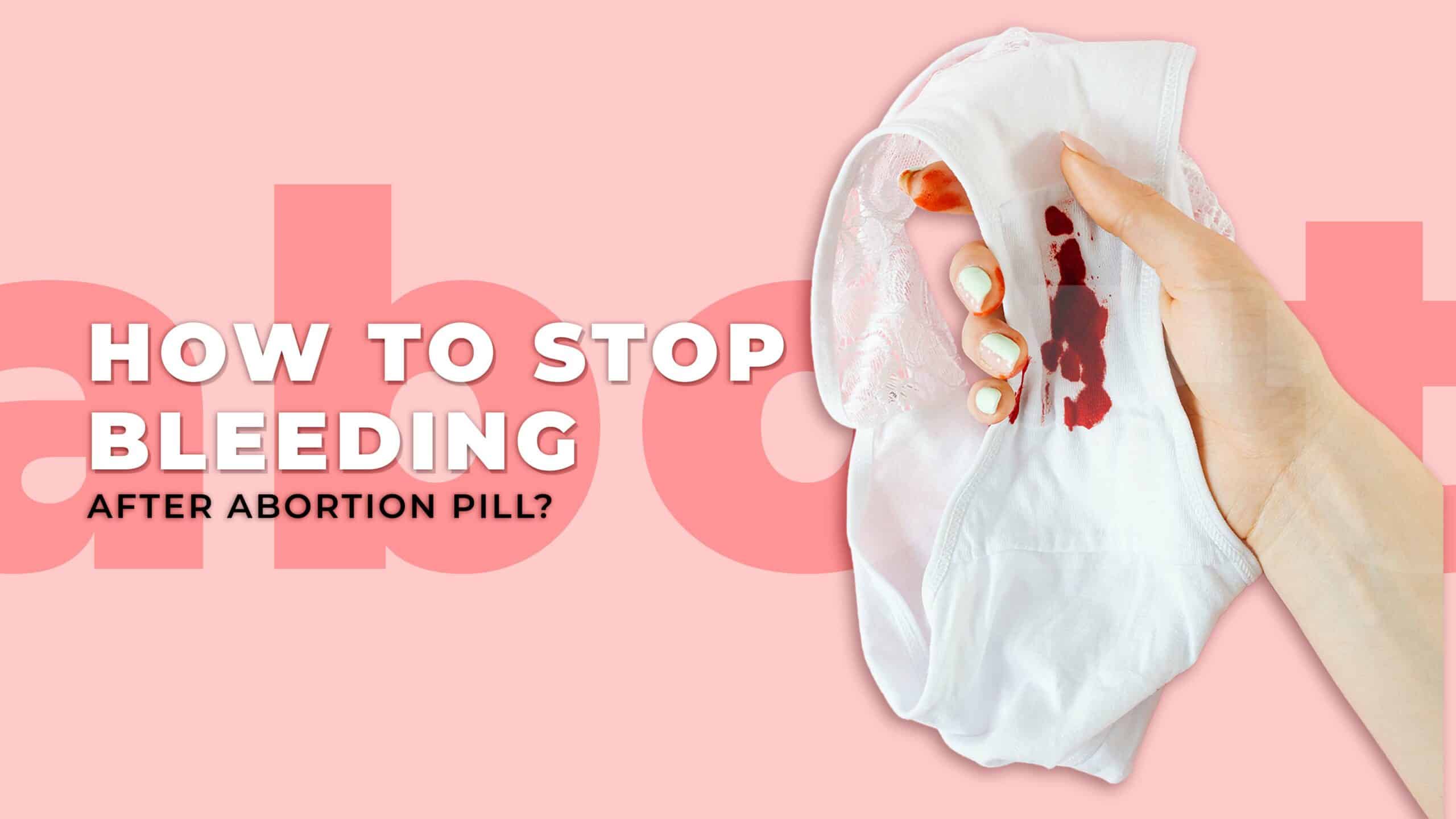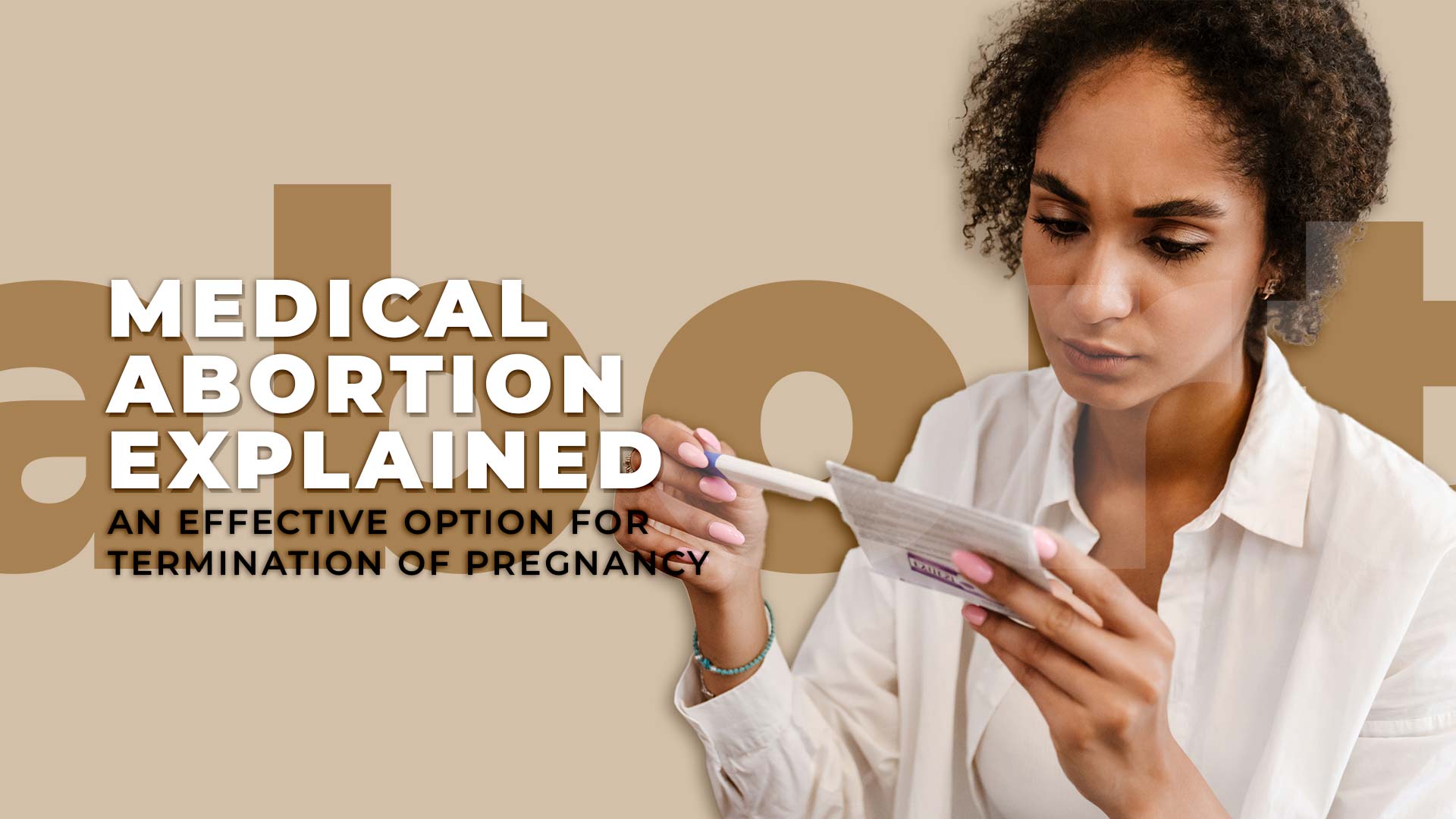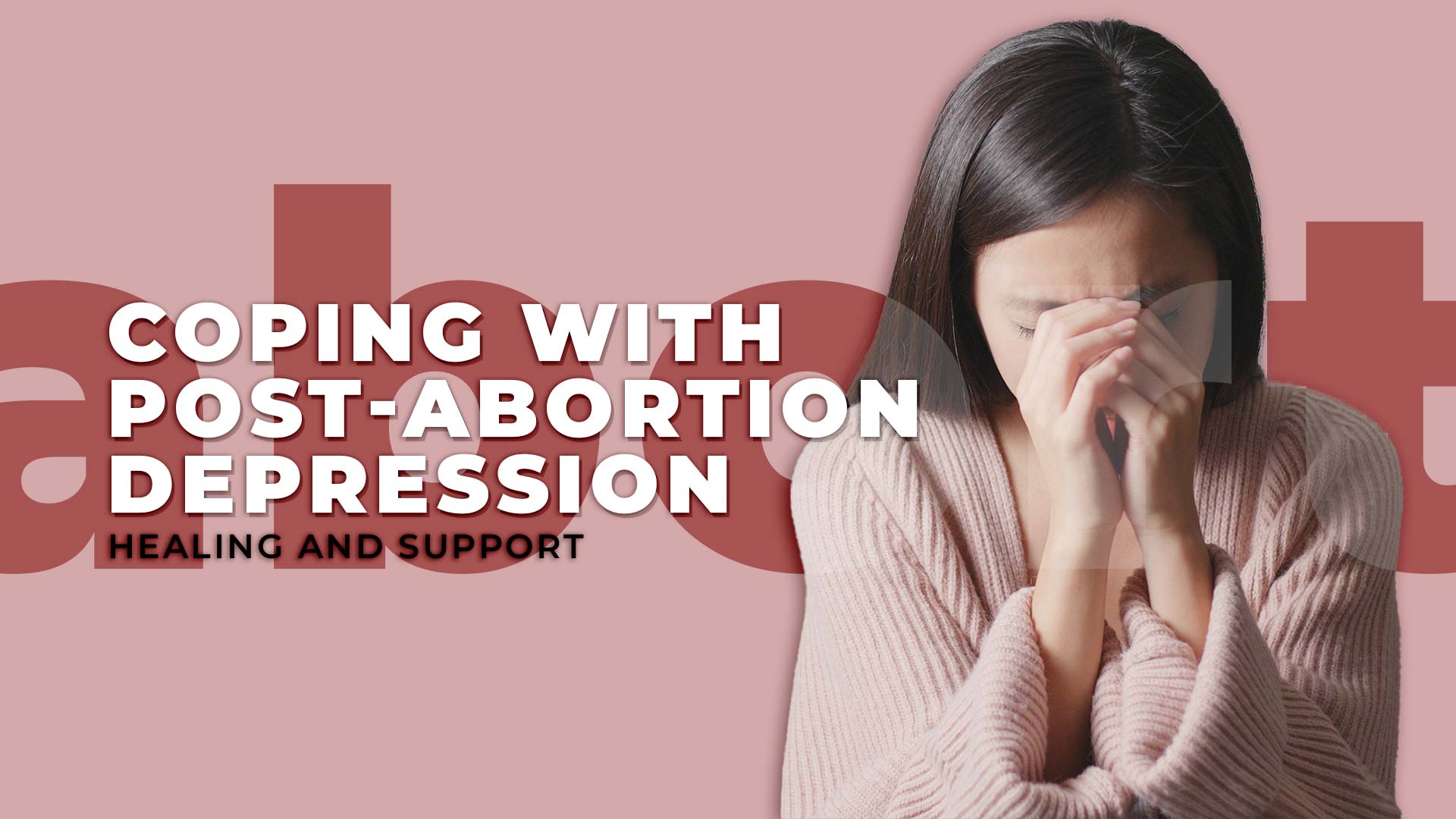Tweaking the womb has always had its very own effects – from deliveries to abortion. The effects are mostly mild, but with different people, it can be different and sometimes even quite serious. The thing is that we have only come to understand most of it very recently. Postpartum depression, caused as a result of a dramatic drop observed in hormonal levels – from that of estrogen and progesterone to even of those produced by the thyroid – in a woman’s body, is somewhat of a recent understanding. Abortion, on the other hand, is relatively more recent freedom in global terms and, so, its aftereffects are even lesser understood and more under study.
As it is, our body looks at both abortion and childbirth quite similarly – the baby’s being pushed out of the body. As a result, the observed hormonal changes are also just similar. Levels of estrogen and progesterone hormones in the body experience crazy drops in both cases, so do the hormones released by the thyroid gland, which leaves us sluggish, tired, depressed, and with, to name it, emotional issues as a result of hormonal imbalance. Now, while post-abortion syndrome[1] is certainly understood to be real, abortion is what needs to be understood more keenly before anything else here.
What is Abortion?
In simple terms, this procedure is what is introduced to end a pregnancy before the full growth of the fetus due to a variety of reasons. Some of the reasons for not having a baby and for opting for an abortion instead, according to a survey done by the Guttmacher Institute with over 1200 women as subjects[2], are the following, with several women often stating multiple common reasons:
- 74% said that childbirth would somehow interfere with their education, work, and/or the ability to take care of the ones that already depended on them.
- 73% stated that they could not afford to take care of a baby during the said time.
- 48% of them had been suffering through a bad phase in their current relationships and/or didn’t want to take the responsibility of a baby as a single mother.
- 40% of the subjects said that they had completed their childbearing before the said time, and around 30% said they were simply not ready for it.
However, these are not the only reasons for women having abortions. Some women also look towards their parents and/or partners before deciding to have a baby. Younger women are often just not ready for becoming a mother.
As it is, a fetus takes roughly a duration of 39 weeks – which is also just around 40 weeks after the mother has her previous menstruation – to be entirely ready for birth. Abortion, as mentioned before, is the medical removal of the said fetus any time before the given duration.
Now, given duration or not, both abortion and childbirth are followed by complex and almost sudden hormonal changes – be it as a result of the drop in the levels of progesterone and estrogen or in the changes in the levels of thyroid gland hormones. All of these changes somehow come together to affect how the body functions after the event. As it is, these slight alterations heavily affect the mood of the one that experiences them. This is what is known as postpartum depression in case of the event being childbirth, and in the case of abortion, it is called Post-Abortion Syndrome.
According to what numerous activists have already stated, Post-Abortion Syndrome accommodates the “allegedly universal, negative psychological effects” women observe and experience from up close once they have been through the process of abortion.
However, abortion also has its very own myths, like:
- It makes it just about impossible to get pregnant again in the near future or, in case that happens, the chances of miscarriage are way more than ever before.
- Other than that, it has also been said to exponentially increase the risk of breast cancer.
A variety of medical research, on the other hand, supports neither of these claims. But then, apart from that, what also needs to be looked at is the fact that PAS itself isn’t entirely validated – even though it is becoming a part of our current language – counselors have suggested at times that everybody responds differently to abortion, and that response can range from almost normal behavioral patterns to quite complicated ones. Also, just because this is observed doesn’t mean it’s totally a medical condition[3].
Therefore, before all, understanding what defines Post-Abortion Syndrome is quite crucial – most of all how different women respond to abortion before and/or after the procedure.
Post-abortion Syndrome (PAS), or what is often called Post Abortion Stress Syndrome (PASS), is the given name for the psychological aftereffects of abortion, also often understood to be inspired by the terminology of Post Traumatic Stress Disorder (PTSD). Anyway, it is also necessary to understand that PAS/PASS is not something that has been accepted by many medical institutions and is more so a topic of political debate at the moment[4].
Now, although the mental health experts haven’t yet recognized any actual diagnosis of the discussed issue, it is widely agreed upon – even by them – that emotional states and experiences post-abortion tend to differ widely among different women. Studies also suggest that the feelings depend on the magnitude of readiness for pregnancy or abortion[5], i.e., if a woman was more ready for childbearing and the abortion was sudden and not planned, she’s more prone to be having negative feelings in comparison to any women that were ready for abortion and it was planned already.
Accordingly, the most-commonly observed feelings in women post-abortion are as follows:
- Relief: It’s a quite obvious response when the decision stems from having the definitive feeling of not being entirely ready for bearing a child. Understanding that moving ahead with it would have been harmful for both the mother and the child.
- Sadness: Sadness is an expression of sheer inability here. That you perhaps wanted to go ahead with the pregnancy but couldn’t because of financial or other reasons, which would have negatively impacted the child’s life, is what leads to this feeling.
- Guilt: It has been observed very commonly, also because some people end up thinking they ended life by getting an abortion and often blame themselves for not having chosen the right birth control method. The thing is that no method is 100% perfect.
- Regret: It can be caused due to several reasons – the thought of having ended a life (which isn’t true); the thought of not being ready at the right time; the thought of not being able to raise a child during the said stage of life; or numerous other reasonable or perfectly make-believe points. Regret is just about as common as any other feeling experienced after an abortion.
None of these feelings, however, have to have a reasonable origin. On the other hand, while the feelings mentioned are almost obvious, fairly common, and just about justified, none of these explain the depression that might follow in some cases.
Signs of Depression After Abortion
As has often been mentioned above, the emotional imbalance isn’t rare post-abortion, irrespective of it being planned or otherwise. As it is, depression occurs in some such cases. Now, although depression and pregnancy termination don’t seem to provide us with too many resembling answers together, the hormonal changes seem to be reason enough at times for the changes in all the behavioral and emotional patterns. Some of which even point towards depression after abortion, and the signs may include:
- Experiencing the aforementioned basic feelings
- Suffering the loss of self-confidence and/or self-esteem
- Feeling lonely and isolated
- Having bad dreams (nightmares) and other sleep problems
- Going through a bad phase in a relationship
- Thoughts of self-harm, including suicide
As it is, it often happens that when we make a decision that’s too crucial, it takes a toll on us even when the decision made is right altogether. It’s best advised to get in touch with a counselor in case any negative thoughts surface after going through the procedure.
So, just to put it out there, while PAS is quite common, it isn’t exactly a mass response, and the research data available yet is just not enough for any definitive conclusion, the effects are often real, even if only in selective women. As a result, there’s a peculiar need to follow some after abortion care tips to let it not devastate yourself just because you took a much-needed decision.
Caring for Yourself After an Abortion
A 30-year study concluded in 2008 stated that the risk of mental health disorders in women increases after abortion by about 1.5-5.5 percent[6]. Being in an environment that’s hostile enough already and having more risks added to the list means that some lifestyle changes follow – say opting for some “do’s and don’ts” after abortion – but before all of that, some basic tips for caring for yourself:
- For any issue that touches the psychological boundaries, the best solution is known to be ‘talking’ – talk to someone who you can trust and who listens to you.
- Eat whatever (healthy thing) you want to, take some time to exercise, keep yourself busy and distracted. Go for more things or activities that act as your stress-busters.
- Don’t isolate yourself – take a break, see a friend, visit a park or a gallery or even a movie theatre if you feel like it – make yourself feel good about being responsible.
The issues can still persist after you try these things out – they won’t just disappear. Work on yourself, and try to worry less.
On the other, in case you don’t feel like making a conversation with someone related to yourself, or simply don’t feel like going to a park or a gallery, get medical help. Get in touch with a therapist/counselor and talk to them. It is known to help. Moreover, some countries also have their abortion help centers and counselors are made available to the public for free.
Medically plausible or not, if it affects people quite often, it’s good to go ahead and find a solution that actually works. Post-abortion Syndrome (PAS) is simply understood to be the result of hormonal imbalance so far and, reasonably enough, it could be the rightest answer. What’s rather brilliant is that the symptoms can be treated – that there’s always a solution.
References
- Abortion and mental health. (2008).
apa.org/pi/women/programs/abortion/index - Biggs MA, et al. (2016). Does abortion increase women’s risk for post-traumatic stress? Findings from a prospective longitudinal cohort study. DOI:
10.1136/bmjopen-2015-009698 - Cohen SA. (2006). Abortion and mental health: Myths and realities.
guttmacher.org/gpr/2006/08/abortion-and-mental-health-myths-and-realities - Cohen SA. (2013). Still true: Abortion does not increase women’s risk of mental health problems.
https://www.guttmacher.org/gpr/2013/06/still-true-abortion-does-not-increase-womens-risk-mental-health-problems - The emotional effects of abortion. (2014).
plannedparenthood.org/files/8413/9611/5708/Abortion_Emotional_Effects.pdf - Kelly K. (2014). The spread of ‘post abortion syndrome’ as social diagnosis. DOI:
10.1016/j.socscimed.2013.11.030 - Kelly K. (2017). Why false claims about a nonexistent “post abortion syndrome” influence access to abortion in America.
scholars.org/sites/scholars/files/ssn-key-findings-kelly-on-post-abortion-syndrome.pdf - Major B, et al. (2009). Abortion and mental health: Evaluating the evidence. DOI:
10.1037/a0017497 - Mental health issues and abortion. (2018).
ibisreproductivehealth.org/sites/default/files/files/publications/LAI_factsheet_Mental_health_Apr18.pdf - Rocca CH, et al. (2013). Women’s emotions one week after receiving or being denied an abortion in the United States. DOI:
10.1363/4512213





